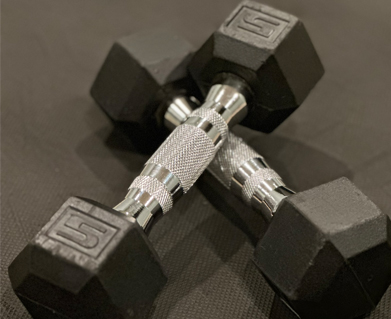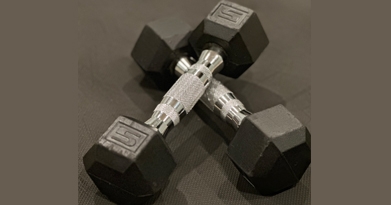
For generations, the image of weightlifting has conjured hulking physiques and intense competition. It's no surprise then that many parents hesitate when considering weight training for their children. I am asked weekly by the parents of youth athletes if weight lifting is safe for their kids. The truth is, the world of strength training for kids has evolved, offering a safe and beneficial path to improved health, confidence, and even academic performance. So, before you dismiss the idea completely, let's explore the myths and realities surrounding kids and weightlifting.
Myth #1: Lifting weights stunts growth.
This fear stems from a misunderstanding of how strength training affects developing bones. In reality, studies show that properly supervised youth strength training strengthens bones, not weakens them. The key lies in using light weights with high repetitions and focusing on proper form, minimizing pressure on growth plates. Additionally, strong muscles provide better support for growing bones, further reducing the risk of injuries.
Myth #2: Weightlifting is only for athletes.
While athletes can reap significant benefits from strength training, it's not just for the sporty bunch. Every child can gain something from building strength, from improved posture and balance to increased confidence and self-esteem. Weight training can also enhance daily activities, making chores and playground playtime easier and more enjoyable.
Myth #3: Kids get enough exercise from daily activities.
While playing and running around are crucial for overall fitness, they often lack the specific muscle-building aspects of strength training. Regular strength training targets and strengthens different muscle groups, leading to better body awareness, coordination, and injury prevention. This is especially important for teenagers going through rapid growth spurts and developing their coordination skills.
Benefits Beyond the Biceps:
Now, let's move beyond the myths and delve into the real benefits of well-designed youth strength training programs:
- Physical benefits: Increased strength, bone density, and muscle mass; improved posture, balance, and coordination; reduced risk of injuries; enhanced athletic performance (for those involved in sports). Bone mineral density tends to plateau and often decrease after the age of 25 years. Thus, weight lifting early is important to establish adequate bone mineral density.
- Mental benefits: Boosted self-confidence and self-esteem; improved body image and self-perception; enhanced focus and concentration; increased discipline and goal-setting skills.
- Academic benefits: Studies have shown a positive correlation between strength training and improved academic performance, possibly due to increased cognitive function and focus.
Making it Safe and Effective:
The key to reaping the benefits of weight training for your child lies in doing it right. Here are some essential tips:
- Seek expert guidance: Start with a consultation a certified personal trainer or strength training coach specializing in youth fitness. They can assess your child's overall health and fitness level, design a safe and effective program, and provide supervision during workouts.
- Focus on proper form: This is crucial for preventing injuries and maximizing the benefits of each exercise. Never let your child lift weights unsupervised or use machines they haven't learned to operate safely.
- Start light and progress gradually: Avoid using heavy weights, especially in the beginning. Focus on bodyweight exercises or lightweight training with high repetitions. As your child gets stronger, they can gradually increase the weight and difficulty.
- Listen to your child: Pay attention to their physical and emotional well-being. Stop the workout if they experience pain, discomfort, or discouragement. Encourage them to communicate their feelings and adjustments needed in the program.
- Make it fun and engaging: Choose activities your child enjoys, whether it's working with resistance bands, bodyweight circuits, or specific training tools. Gamifying workouts or focusing on specific goals can keep them motivated and engaged.
The Final Rep:
Ultimately, the decision of whether or not your child should lift weights is a personal one. However, by dispelling the myths and understanding the potential benefits, you can have an informed conversation with your child and their healthcare professional. Remember, weight training can be a valuable tool for building a strong, healthy, and confident young person. So, consider taking the weight off your mind and explore the possibilities with your child, one rep at a time.
Additional Resources:
- The National Strength and Conditioning Association (NSCA): https://www.nsca.com/
- The American Academy of Pediatrics (AAP): https://www.healthychildren.org/
- The American Academy of Orthopedic Surgeons: https://orthoinfo.aaos.org/en/staying-healthy/healthy-bones-at-every-age/
Remember, this is just the beginning of a conversation. Be sure to do your own research, consult with professionals, and make the decision that's best for your child and your family.







